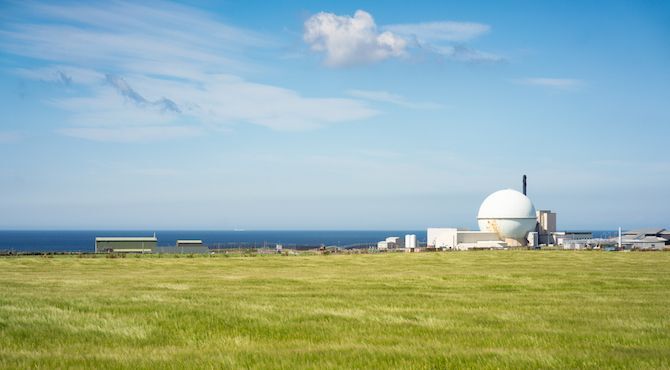CBI demands urgent action on climate change
The UK government needs to take urgent action to unlock business investment in clean growth, advises the CBI.

 4 November 2019
4 November 2019How businesses can reach net-zero greenhouse gas emissions
Dame Fairbairn outlined three moves the government needs to implement if it wants businesses to take the action necessary to meet the target of net-zero greenhouse gas emissions by 2050. They are:- Promoting renewable and nuclear energy
- Establishing plans to make transport and heating networks green
- Including consumption emission rates (i.e. the emissions created by products imported into the UK from overseas, such as phones and TVs) in the UK’s greenhouse gas emission figures.
The beginning of a ‘Decade of Delivery’?
The CBI is launching a new report, 'The Low Carbon 2020s – a Decade of Delivery', which sets out the actions seen as essential to the UK’s low-carbon success in the next decade.Dame Fairbairn says the CBI is asking the government to turn 2020 into a year of action, with the deadline being the UN COP26 climate change conference in Glasgow in 12 months' time.Related articles
- Businesses hope election will end Brexit logjam
- Business focuses on climate after UN summit
- Major boost to offshore wind farm Government-industry deal
“It could be our climate change Olympics, reinforcing the UK’s position as a global climate leader, as well as showing the public at home, and wider world, the scale and reach of UK low-carbon innovation and expertise,” she explains.“We need the government to build on what works. As a priority, that means scaling up the deployment of emerging decarbonisation technologies, such as carbon capture, use and storage and hydrogen-based solutions.“In renewable energy, we need to replicate the success we’ve had in offshore wind in recent years, with onshore wind. It is essential that the next government maintains this successful approach."
Further finance for nuclear plants
Dame Fairbairn adds that, with more than half of the UK’s nuclear capacity set to be retired in the coming decade, the next government needs to push ahead with financing for new nuclear plants.While she says construction is advancing at the new Hinkley Point C plant, this has to be replicated at other sites to secure the biggest benefits for consumers. “Finally," she concludes, "as a country, let’s have an honest conversation about how we make this transition a global success.“In the heat of this election campaign and beyond, it’s vital we recognise that the UK’s success in cutting emissions over the last 30 years has been only possible because of cross-party support.“No matter what happens in this election, we need the next government to ensure that this hard-won and indispensable political consensus on low-carbon holds."Read more news and views from David Sapsted.
Subscribe to Relocate Extra, our monthly newsletter, to get all the latest international assignments and global mobility news.Relocate’s new Global Mobility Toolkit provides free information, practical advice and support for HR, global mobility managers and global teams operating overseas. Access hundreds of global services and suppliers in our Online Directory
Access hundreds of global services and suppliers in our Online Directory
©2026 Re:locate magazine, published by Profile Locations, Spray Hill, Hastings Road, Lamberhurst, Kent TN3 8JB. All rights reserved. This publication (or any part thereof) may not be reproduced in any form without the prior written permission of Profile Locations. Profile Locations accepts no liability for the accuracy of the contents or any opinions expressed herein.






























